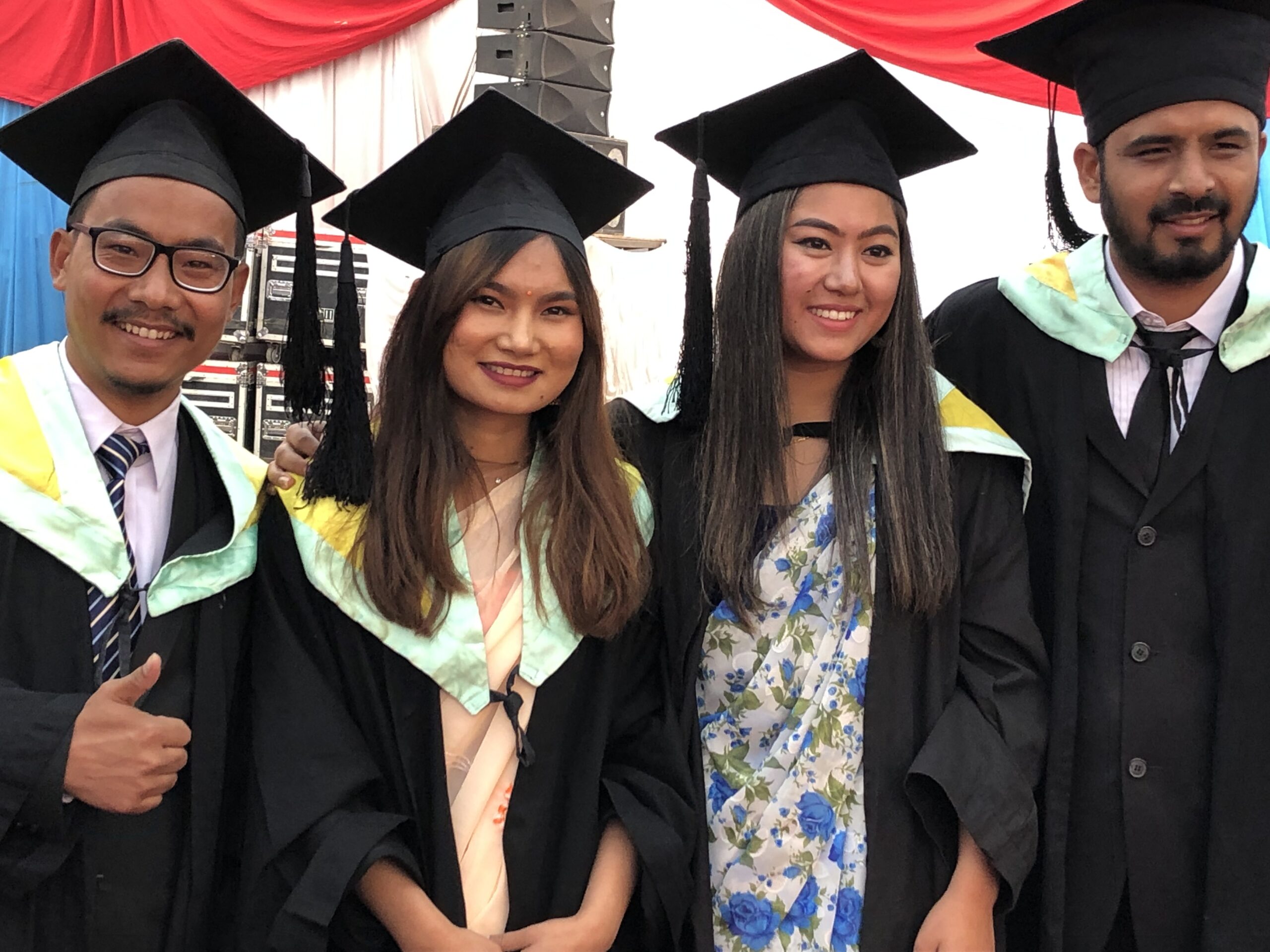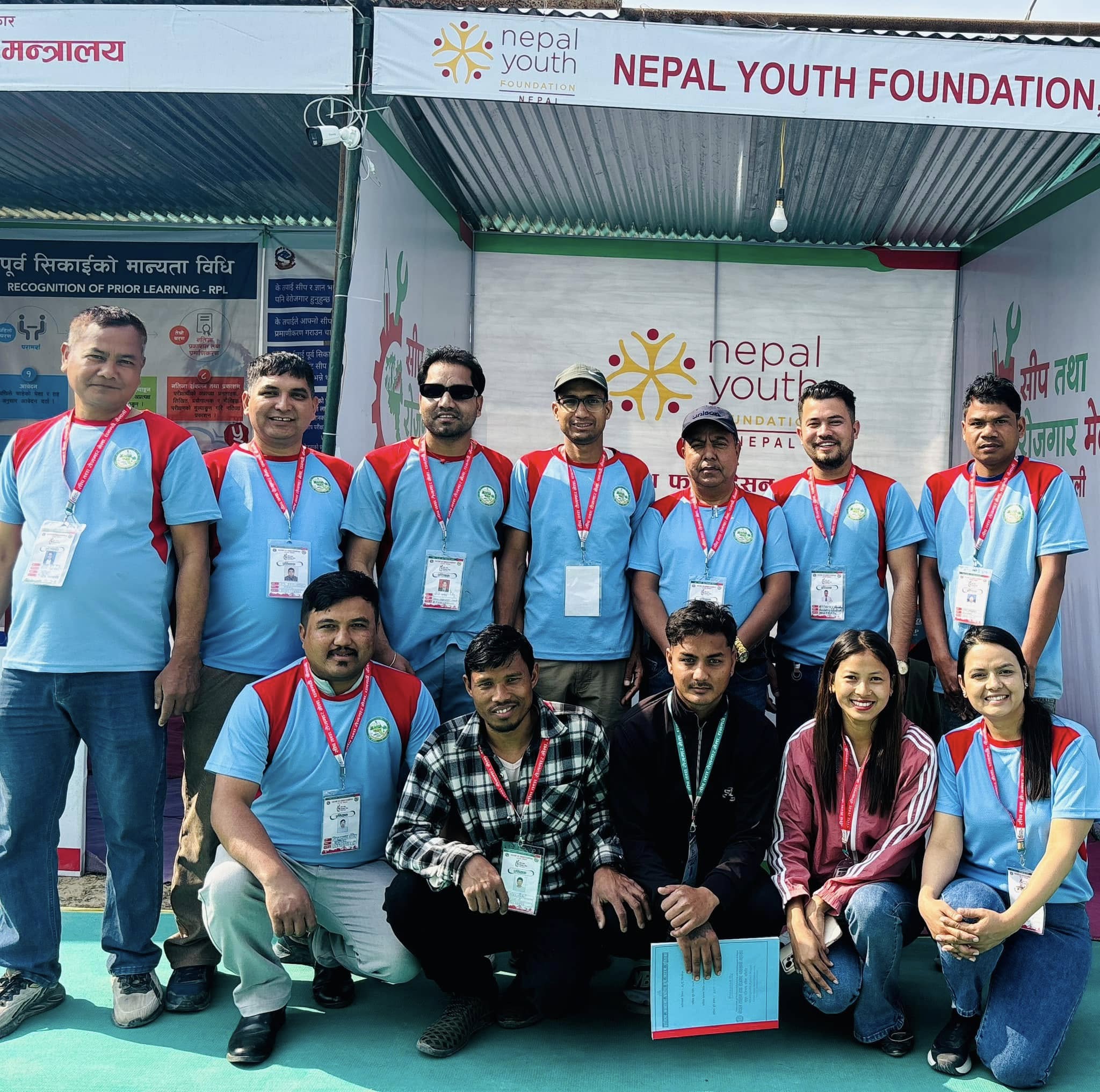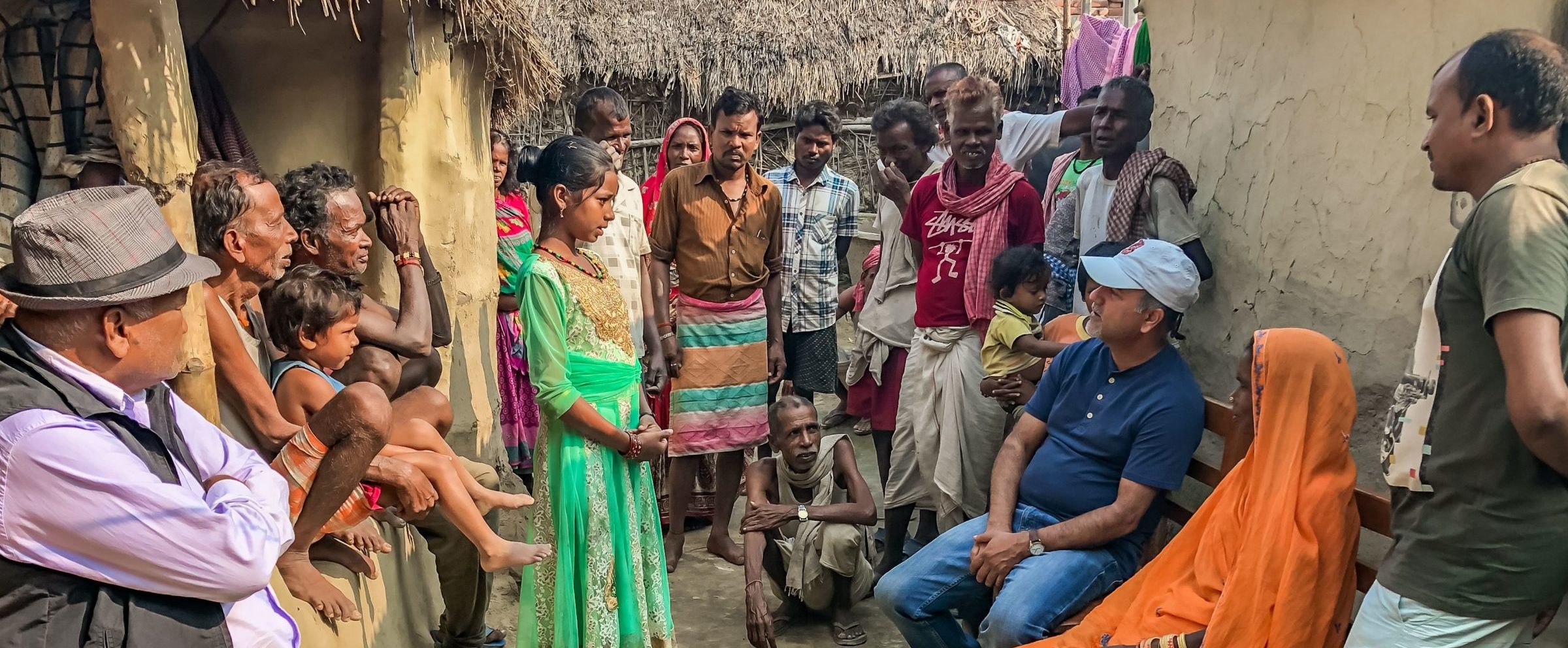
Caste Equality Project
Launched in 2022, Nepal Youth Foundation’s long-term Caste Equality Project is our most ambitious and daring undertaking yet. Our goal is to empower Nepali Dalit communities to access the opportunities and resources they need to build towards the futures they envision for themselves and their children.
Like our Empowering Freed Kamlaris program of 2000-2020, we expect this work to take a generation or more. Our full Caste Equality Project will combine lessons learned across our organization’s 30+ year history, providing on-the-ground interventions in Dalit communities who have endured the worst oppressions of all. We’re proud to develop these interventions in partnership with allies within the Dalit Rights community.
The challenges confronted by Nepal’s Dalit communities are complex and tightly woven with every aspect of life, from pre-natal care to early nutrition to educational opportunities to childhood friendships to housing stability and onward. NYF has already begun the work of encouraging change at higher levels in Nepal by championing human rights lawyers from the Dalit community in Phase 1 under the Educating Dalit Lawyers program.
In 2023-2024, we began our work in Saptari District with the launch of peer counseling groups and school awareness campaigns, as well as the establishment of two Community Learning Centers. The project will eventually include nutritional education and home health resources for mothers, scholarships, school improvement projects, psychological counseling for children and adults, vocational training for youth to begin neighborhood improvement projects, advocacy, and so much more.
Phase I: Educating Dalit Lawyers
“Dalit” castes are those that have historically been referred to as “untouchable.” Caste-based discrimination is illegal in Nepal, but in rural areas like Saptari District, access to legal recourse is rare. Many members of Dalit castes are not even aware that legal protections exist for them.
Educating Dalit Lawyers (or EDL), launched in July 2022, is an enriched law school scholarship program designed especially for graduating high schoolers from Nepal’s Dalit community, formerly known as the “untouchable” castes. These young people are hoping to become human rights lawyers who will eventually fight for the rights of Dalits in Nepal’s courts. Learn more here.
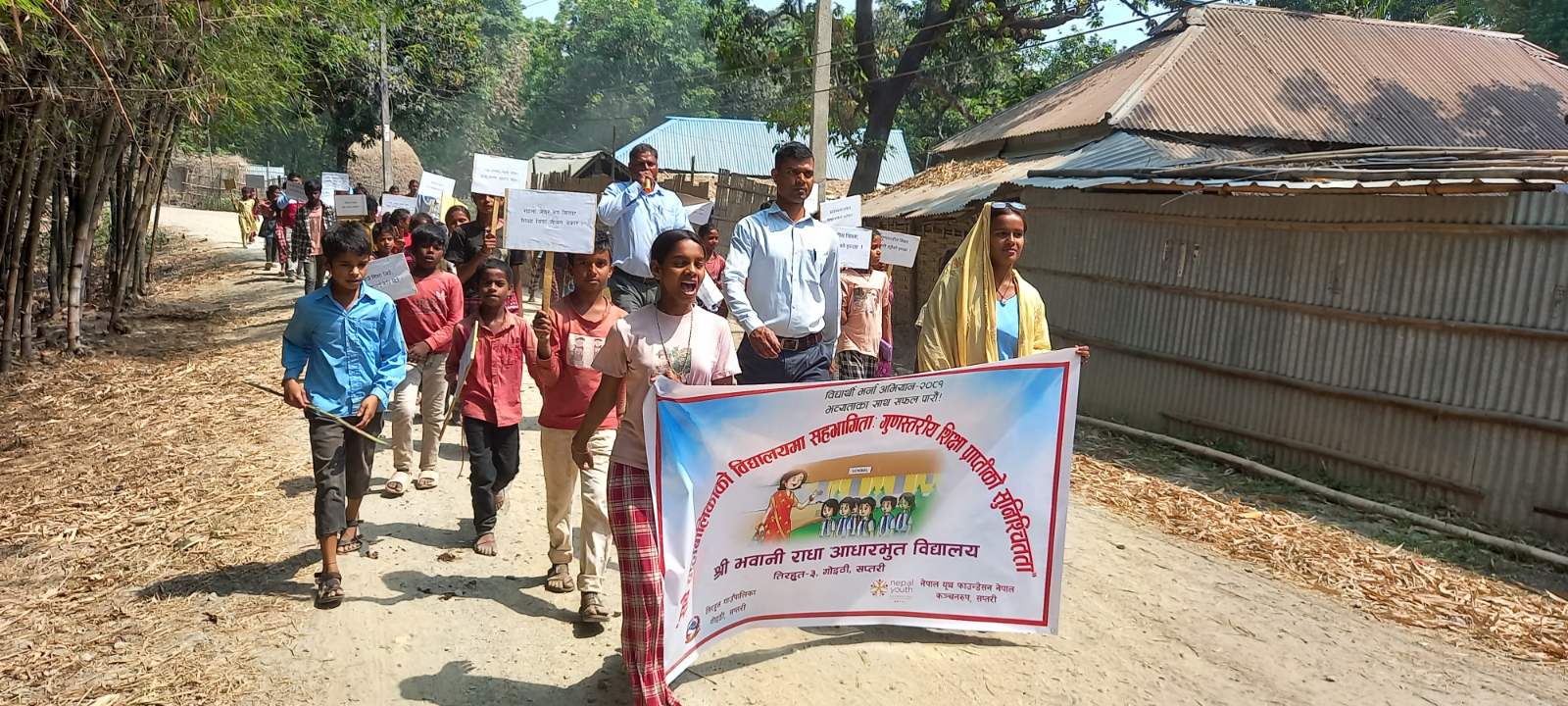
Phase 2: Caste Equality Project in Saptari District
Saptari District is a region of Nepal where Dalit populations (those historically called “untouchable”) face particularly complex barriers between themselves and crucial resources like education, good nutrition, safe shelter, and more. NYF began the work of turning the tide for children living in Saptari District in July 2023. This phase focuses on bringing specialized versions of our existing, proven programming into the Musahar Dalit villages of Saptari District.
School Enrollment Campaign
In early 2024, NYF worked with local families, teachers, and stakeholders to organize the School Enrollment Campaign—a massive push towards educational equity in Tirhut Rural Municipality. The campaign included rallies and personalized home visits to promote the value of education, with staff members making door-to-door visits with parents to encourage them to enroll their children into school. Hundreds of school uniforms—handmade by industrial tailoring students who had been enrolled at Olgapuri Vocational School at the time—and bags were also distributed to children in the region. Thanks to NYF scholarships and new nutrient-rich school lunches, by the time the 2024 school year began, over 820 students surged into local schools. This is a 35% increase in attendance compared to the previous year. We’re now looking at constructing classrooms to accommodate these new students.
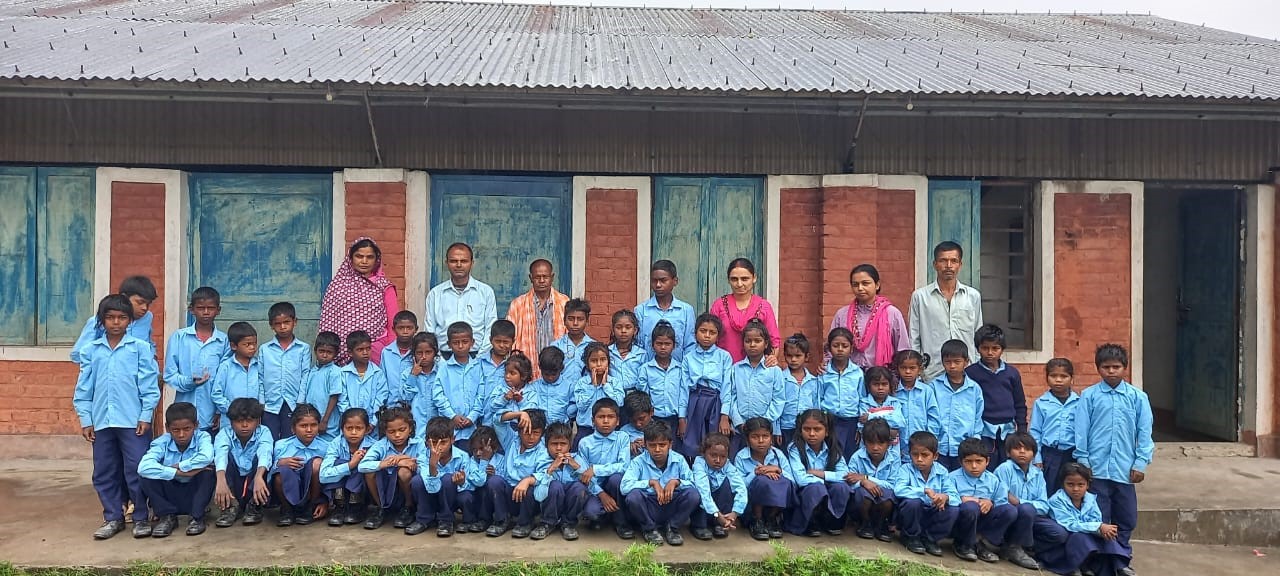
May 2024 - Elementary school students wearing new uniforms are filling schoolhouses in Tirhut Rural Municipality, Saptari District. The vast majority of these children belong to Dalit castes, and until now, they've endured tremendous educational neglect. Now that they're here, they need new classrooms, well-trained teachers, and tutoring courses to help them catch up.
Women’s Empowerment Campaign
Dalit girls and women face oppression related to both caste and gender. In an effort to tackle this, we’ve trained local girls aged 13 to 19 to help launch two powerful programs in Saptari District: Street Drama Activism and Peer Counseling.
Street Drama Activism
Drawing inspiration from the impactful street drama programs of NYF’s anti-Kamlari movement from over 20 years ago, street drama activism will be an important component of the Caste Equality Project. The dramas aim to raise awareness about harmful social issues prevalent in the communities we are working with. NYF is collaborating with Aarohan Gurukul School of Theater to train local youth in performative art, who are then empowered to perform street plays.
The plays are performed by local youth in the native Maithili language, helping members of the audience understand easily. After seeing a particularly moving performance in February 2024, one viewer shared with us, “We often engage in certain practices without fully comprehending the consequences, and the play effectively served as an eye-opener.”
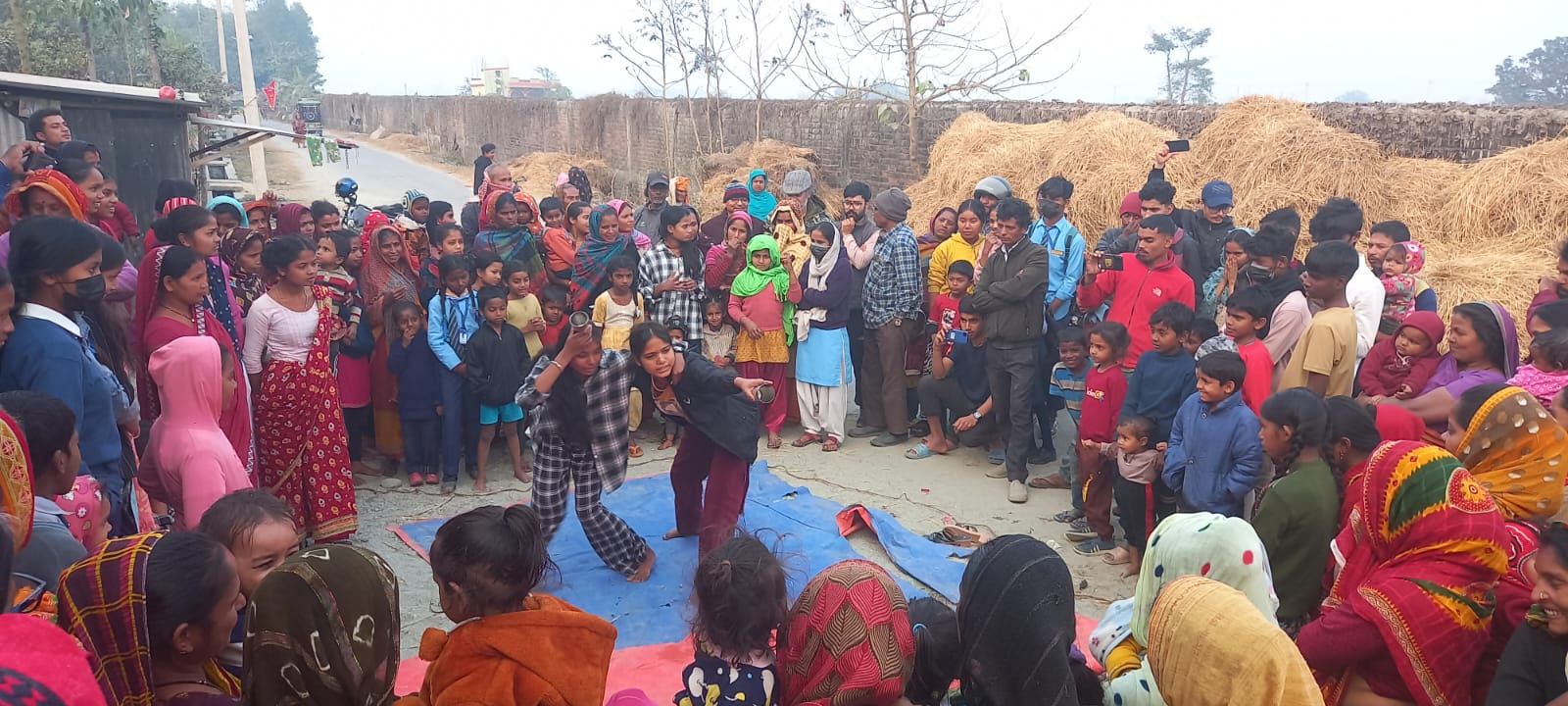
In 2024, 10 local street drama activists have been working on performances to raise awareness for issues related to child marriage. One 14-year-old girl canceled her impending marriage after joining the street drama team!
Peer Counseling
Trained peer counselors will have significant roles in the community. As they form support groups and share information about mental health, healing, family planning, and more, we see peer counselors supporting community members in so many ways—including the prevention of harmful practices like early marriage.
You can find more information on these peer counseling trainings in this blog post.
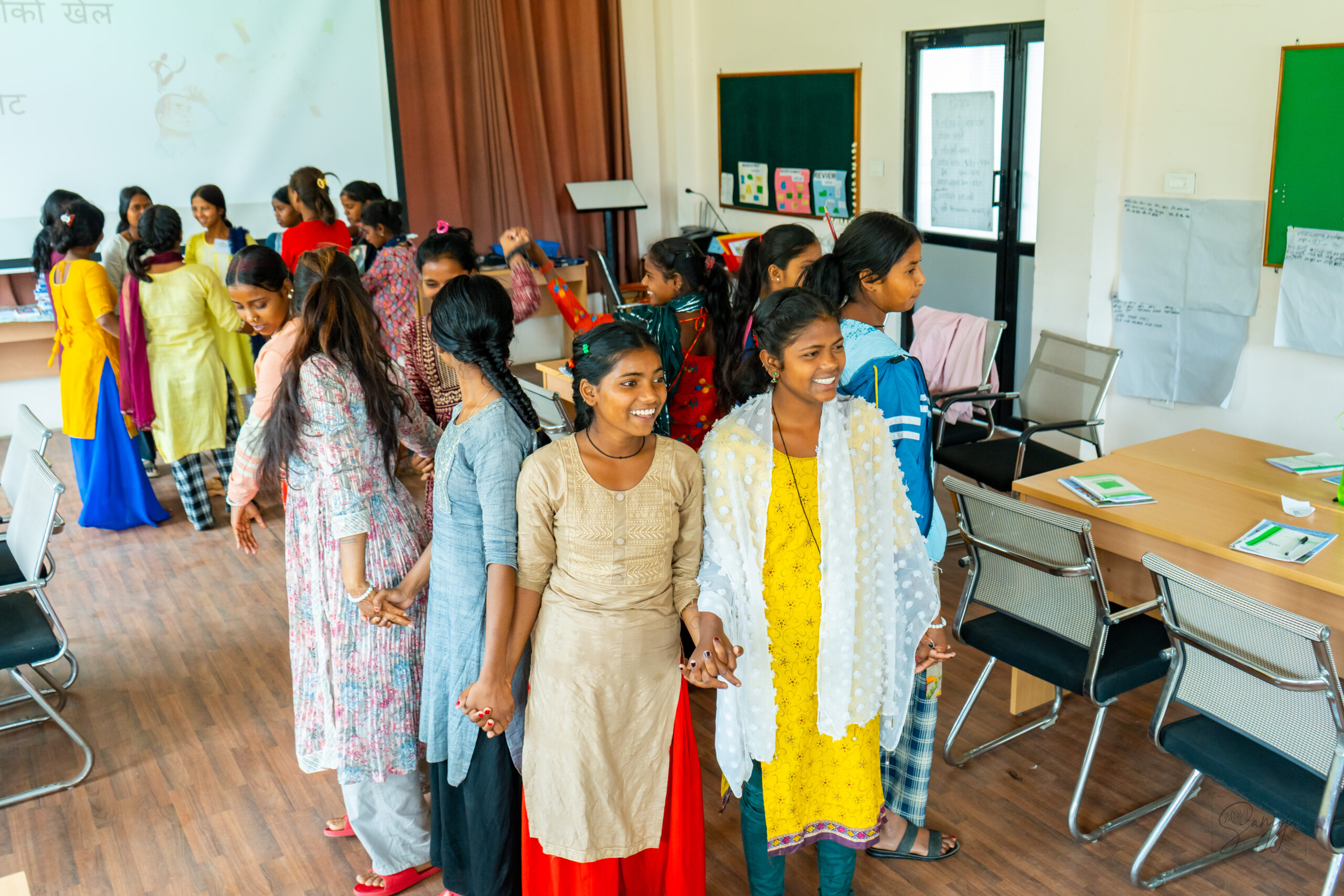
In April 2024, thirty girls (aged 13 to 19) from Tirhut Municipality traveled with our staff to Olgapuri Village to participate in a five-day peer counseling training session at our very own Ankur Counseling Center.
Upcoming Projects
- Drastically improve the daily midday meal in schools, using learnings from our Community Nutrition Kitchens during our earthquake response and our COVID-19 response. The meal will meet each growing child’s core nutritional needs. This will improve school attendance and will improve the nutritional status of the children themselves.
- Organize town meetings to help teachers, local government officials, and parents create a joint, cooperative strategy where K-12 education is concerned.
- Establish a safe “study hall” environment as a space for preschoolers (all day) and older children (after school) to receive educational support, allowing parents to focus more on working without worrying about childcare.
- Provide vocational training for young adults in construction trades like plumbing, electrical, welding, and carpentry. These young adults will then return to their villages to begin their first trade jobs: improving the school buildings back home!
- Bring school infrastructure to usable standards, including bathroom improvements, safety, and more.
- Establish a local co-op/savings group among the women, beginning by providing livelihood training and business start-up support to 20 mothers.
- Begin establishing a peer counseling program.
- Launch a large-scale awareness and prevention campaign about topics related to women’s health: menstrual hygiene, early marriage, nutritional health, and the traditional dowry system, for example.
- Hold adult literacy classes.
- Organize disaster preparedness programs and establish emergency response resources within the villages themselves, including forming an action group for disaster response, plus environmental protection and hygiene (for example, protecting water safety).
Casteism in Nepal
Like other entrenched systems of oppression throughout the world, Nepal’s caste system has a complex history.
For many centuries, changing political regimes worked to unify the Himalayan civilizations that would eventually become the Nepal we know today. A strict social hierarchy developed across this diverse population, rooted in the spiritual practices of Hinduism.
This “caste system” ranked families, ethnic groups, and communities based on their occupations, and strict laws solidified and enforced this oppressive social order. A person’s caste was—and still is—permanent.
Dalits are in the lowest of these castes and make up over 13% of Nepal’s population—around 4 million individuals. At least 42% of Nepal’s Dalits (over double the national average) live below the country’s poverty line of only $166 per year.
Caste-based discrimination was formally outlawed in Nepal in 1963 (with renewed commitment from parliament in 2006), but due to structural inequality, historical oppression, widespread tradition, and cultural bias, Dalits in Nepal face social, economic, cultural, religious, and political marginalization. Hate crimes and acts of violence often go unprosecuted, and many in these communities experience severe limitations in educational access, employment, housing opportunities, and health care.
Discrimination is worst in rural regions, but even in Nepal’s urban areas, where the culture has changed more rapidly towards a more merit-based model, stories still abound of shocking injustices experienced by those born into Dalit families.
The Dalit Rights Movement
Since at least the mid-1800s, social reformers in India and Nepal have become increasingly vocal against casteist injustice. Many in the United States and other Western countries will most quickly recognize the name Mahatma Gandhi (1869-1948)—a lawyer known for nonviolent civil rights activism and the Indian fight against British colonial rule, and for inspiring activists worldwide, including Dr. Martin Luther King, Jr. and Nelson Mandela. One of Gandhi’s major goals was the eradication of untouchability, which he called a great evil. (Gandhi’s efforts were not universally embraced in the Dalit rights community. Like any social movement confronting complex systems of oppression, the process of dismantling casteism is complicated, both within the movement and outside of it. Learn more here.)
Legal protections, justice, and progress towards equality for Dalits have been hard-won, with the journeys of these movements differing in each country and each community impacted by casteism. Most information available to Westerners about the caste system is specific to India, as most of the world’s Dalits live there. However, many of the issues facing Nepali Dalits are distinct. At NYF, we’re grateful to have our all-Nepali team to guide our efforts!
The COVID-19 pandemic has made social injustices more starkly visible across the world, and social media has given communities a stronger ability to organize themselves—especially younger generations. Young Dalits are pushing back, inspired in part by the American #BlackLivesMatter protests in the summer of 2020 and beyond.
This “Dalit Lives Matter” movement has seen advocacy initiatives gain strength in both India and Nepal, with court cases involving violence against Dalits receiving unprecedented national attention.
Many of the most successful court cases are presented by lawyers who are themselves members of the Dalit castes—lawyers who personally understand the experiences of their clients, and are prepared to argue their cases with devastating precision and clarity. But in Nepal today, only about 200 Dalit lawyers exist. That’s only 0.001% of the Dalit community. Of the judges serving in Nepal, only .01% are Dalit. Dalits are drastically underrepresented at all levels of Nepal’s government.
Now, with young Dalits across Nepal uniting to push back against systemic oppression, the stage is set for unprecedented social transformation—and NYF is perfectly positioned to support the work of these impassioned young activists.
Partnerships
As always, NYF is developing this project in partnership with local grassroots NGOs, Dalit rights advocates, and community members—a proven approach for ensuring far-reaching, sustainable social change.
Here are a few of the partners helping to ensure we work as effectively as possible:
- Dignity Initiative is a Dalit-led NGO based in Kathmandu, advocating for the rights of the Dalit community through research, activism, policy advocacy, youth empowerment as well as critical engagement in public debate. They are partnering with NYF on Phase 1: Educating Dalit Lawyers. Learn more by visiting our Phase 1 program page!
New partners will be added to this page as the Caste Equality Project grows.
Learn More
The Dalit Rights Movement and the push against casteism have been in the news frequently in Nepal recently. If you’d like to learn more, here is some coverage written by Nepalis and published in English.
Himalayan Times, June 5th, 2022, “Caste Discrimination Still Entrenched,” by Ram Kumar Kamat – an overview of casteist discrimination and the ways law enforcement is failing to protect Dalits.

